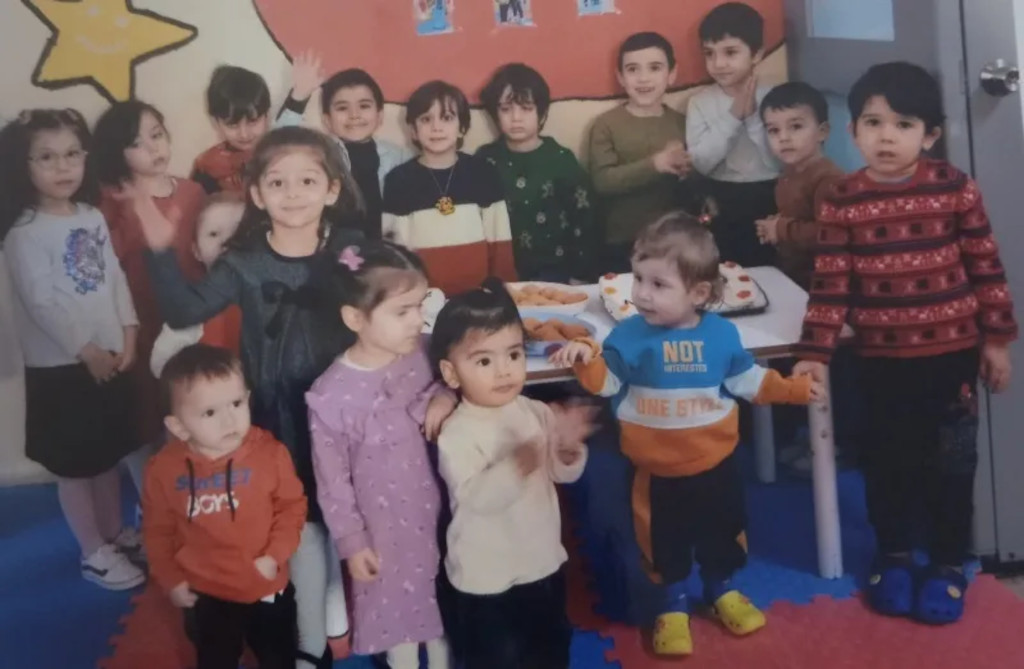Turkish prisons currently house 3,690 children aged 12 to 18, including 165 girls. In addition, 759 children under the age of 6 live with their mothers in prison, among a total of 16,039 incarcerated women across the country, according to statistics from the Civil Society in the Penal System Association (CISST).

Founded in 2006 in İstanbul, CISST advocates for the protection of prisoners’ rights and freedoms. The organization is dedicated to ensuring that prison conditions, practices and policies in Turkey uphold human dignity and adhere to universal human rights standards.
Research by the Turkish Psychological Association shows children in prison with their mothers experience significant developmental delays. These include impaired motor skills — from basic walking and running to fine hand coordination — and reduced cognitive development. The prison environment fails to provide essential childhood needs: adequate nutrition, regular healthcare, psychological support and early education opportunities. Critical services like routine immunizations and preschool programs remain largely inaccessible, further compromising these children’s development compared to their peers outside prison walls.
The United Nations Rules for the Treatment of Women Prisoners (known as the Bangkok Rules), Articles 48-52, contain regulations regarding pregnant women, nursing mothers and women with children in prison. These international standards, adopted in 2010, state that “prisoners who are pregnant/have recently given birth/are nursing/staying with children should be treated according to their needs; children should be monitored by specialists. A child staying with their mother should never be treated as a prisoner.”
According to the Turkish Penal Code’s Article 5275, “the sentence of imprisonment is set aside/postponed for women who are pregnant or who are within six months of delivery.” Experts say that according to the law, the arrest of pregnant women and those who have infants younger than six months of age is not possible at all. The European Court of Human Rights (ECtHR) also takes born or unborn children under protection.
However, women and mothers who have been jailed in the unprecedented crackdown have been subjected to torture and ill-treatment in detention centers and prisons as part of the government’s systematic campaign of intimidation and persecution of critics and opponents, a report titled “Jailing Women In Turkey: Systematic Campaign of Persecution and Fear” released in April 2017 by the Stockholm Center for Freedom (SCF) revealed.
In several cases, mothers were detained in the hospital immediately after the delivery of a baby and before they had a chance to recover. Many mothers were jailed as they were visiting their imprisoned husbands, leaving the children stranded in the ensuing chaos.
A 28-page report issued by the Office of the United Nations High Commissioner for Human Rights (OHCHR) in March 2018 emphasized the detention, arrest and torture of pregnant women and children in Turkey in 2017.
Turkey was ranked the European country with the highest number of inmates during the January 31, 2022-January 31, 2023 period. Turkish prisons hold 348,265 inmates, including those in pretrial detention. When inmate numbers are calculated proportionally to country populations, Turkey again ranks first, with 408 inmates per 100,000 people.
Professor Marcelo Aebi from the School of Criminal Sciences at the University of Lausanne, who led the team preparing the report, evaluated Turkey’s specific situation for DW Turkish. Aebi noted that Turkey’s prison population had increased nearly sixfold over the past 20 years, rising from 60,000 in 2002 to 350,000 in 2023, adding that this increase “appears to be particularly observed after the July 15 coup attempt and seems linked to convictions based on the Anti-Terror Law.”
